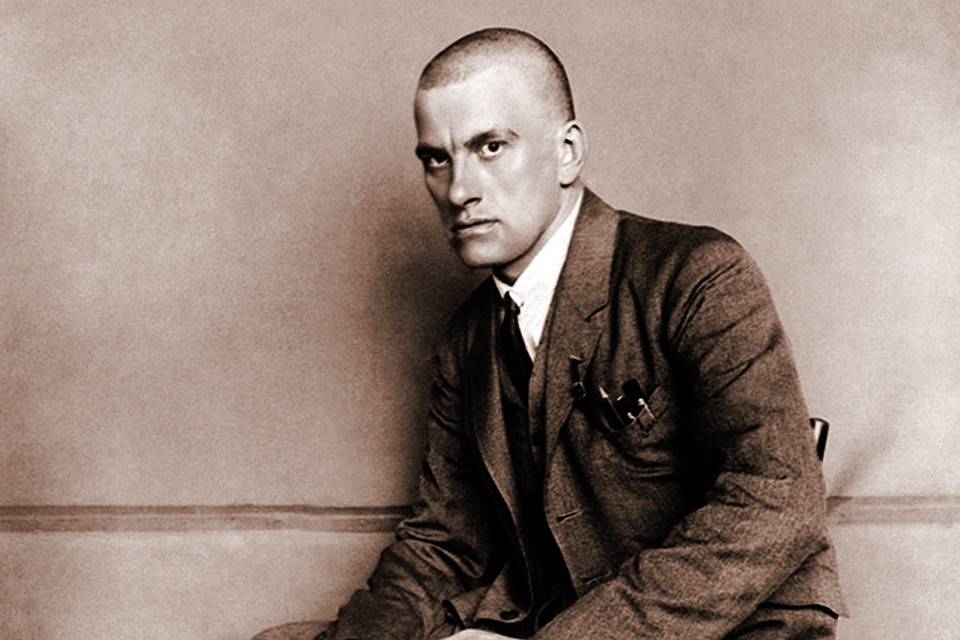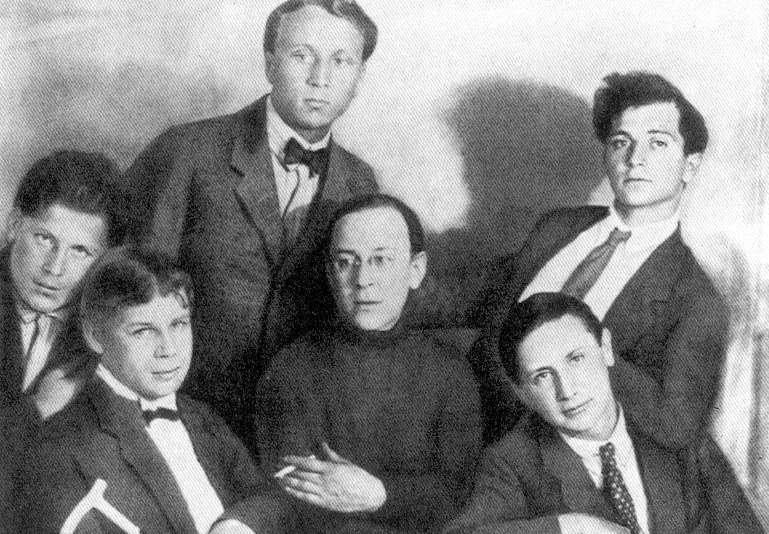In the literary circles for many years, one of the questions that have been exciting for the minds remains the question of the relationship between the two great Russian poets - Vladimir Mayakovsky and Sergey Yesenin. The rumors and gossip about rivalry between writers that have survived to our days are exciting. They even say that between them there was a duel - though of a poetic nature, they wanted to prove to each other so much that one was better than the other. Today, fans are arguing about whether this duel was really? We will try to figure it out.
Yesenin and Mayakovsky: relations
Both Sergey Alexandrovich and Vladimir Vladimirovich lived and worked at the same time. And they seem to have passed away - having committed suicide, with a difference of five years. However, their work was completely different. Yesenin - "his boyfriend", the village "mischievous reveler", who wrote a lot about freemen. Mayakovsky is a futurist who dreamed of changing literature. One is with a simple, easy and understandable syllable, the other is an innovator who invented his words, so that not everyone could always immediately figure out what exactly the poet had in mind. They were completely different, and their fans were different. So was there anything to share between the two poets? Could the poetic duel of Yesenin and Mayakovsky really happen? Was she? Before answering these questions, we will touch on the real facts about the relationship of writers, as well as about some properties of their characters.
Sergey Yesenin
Vladimir Mayakovsky, in his article on how to write poetry, called his colleague "narcissistic." It is likely that Sergei Aleksandrovich had reasons for this: people liked his poems, he liked him, he was perceived, as was said above, for “his own” - and therefore there was something to be upset and to pull up one’s nose.

It was near Esenin that imaginists began to gather together (poets who believed that the goal of poetry was to create an image; they used metaphors and other expressive means a lot), who chose him as their center, their leader. This is another reason why Yesenin could allow himself to be "narcissistic." And the poet was quick-tempered, did not tolerate jokes and superiority over himself, he drank a lot in recent years - and after drinking, he was certainly annoyed and sought to "find out the relationship." Everyone who knew Sergei Alexandrovich characterized him as a complex person. Could this complex character have caused hostile relations with Mayakovsky and led to a duel between Yesenin and Mayakovsky? Perhaps that he could. But let's talk about Mayakovsky himself ...
Vladimir Mayakovsky
In the same article on poems (by the way, very entertaining and necessary for reading by everyone who is interested in the poet), Vladimir Vladimirovich self-critically notes that he has "innate tactlessness." This means that the writer had a sharp language and could first speak and then think. Such harsh statements hurt the living of many sensitive people. And Yesenin was sensitive to his person, no doubt.

And Mayakovsky could not stand to be second: complete, unconditional superiority - that was what he needed. Once he even fought for the title of king of poets, but lost to Igor Severyanin, with which he could not reconcile. His acquaintances spoke of him as a bully and impudent person who intervened in any scandals and squabbles, a mocking and rude man. However, it is interesting that all these traits were acquired: with their help, the great poet fought with natural shyness and shyness, which prevented him from writing and communicating with people. Thus, the character traits of Vladimir Vladimirovich could also easily become a cause of disagreement with his colleague and cause the very duel of Yesenin and Mayakovsky. Two geniuses, two explosive figures. However, it is complete: did the poetical duel of Yesenin and Mayakovsky actually happen? Where did this statement come from?
Where do the legs grow from?
Not so long ago, a series about a curly poet, a singer of a Russian village, appeared on the television screens of our country. In this film, the poetic duel of Yesenin and Mayakovsky is mentioned. And since the movie is biographical, that is, based on real facts from the life of Sergei Alexandrovich, and if you add to this what is known about the characters of the poets, it is not surprising that many concluded that the duel actually existed.

Nevertheless, one must understand: any movie has an element of conventionality. And even if it is based on real events, this does not mean at all that everything that is mentioned in the tape also took place in life. It only means that the picture is based on some real facts, decorating them with a fraction of literary fiction. And before rushing to look for the text of Yesenin’s and Mayakovsky’s duel, it’s better to find out a couple more details: what were the relationships between imagists and futurists - once, and two - what kind of spirit reigned in literary circles of the early twentieth century?
Imaginists and Futurists
Conservatives and liberals - that’s how you can characterize the relationship of the two literary groups. The conservatives were, of course, the imagists, who advocated for melodics and clarity, simplicity and accessibility, for romance, in the end. The liberals were the futurists (from the English future - the future, poets who sought to update literature, including its language), who hailed the revolution as a new future - that is, what they themselves were striving for. About the attitudes, beliefs and hopes of the futurists is not bad said in the article of Vladimir Mayakovsky already mentioned more than once.

It is expected and not surprising that two multi-genre groups entered into controversy. After all, they, in fact, advocated for different polarities: some - for the preservation of long-standing literary foundations and traditions, the second - for innovation and modernization. Imaginists and futurists accused each other of killing poetry. And since Yesenin and Mayakovsky were leaders, it is not surprising that they participated in such clashes, and skirmishes between factions did not add friendliness to personal relations. Information about one of such battles has been preserved when Mayakovsky compared imaginists and poetry with children and his mother in his usual style, stating that the children had killed their mother. Presumably, such verbal duels took place constantly. By the way, poems were also read on them. True, exclusively imaginists.
Atmosphere of the era
At that time, the spirit of competition was in the air. Everyone and everyone competed: representatives of different genres, and "co-group". There were often cases when, meeting in a circle, visiting, poets sat down at a common table and read poetry in turn.
These were a kind of poetic duel, but their goal was not to defeat the opponent, but to demonstrate all the inexhaustible possibilities of literature. This kind of poetry could be Yesenin and Mayakovsky.
So was she?
It is impossible to say exactly whether a poetic duel between Yesenin and Mayakovsky took place. It is likely that it could happen at meetings such as those described above. However, it must be assumed that if this happened, Mayakovsky would certainly leave a memory of this - as has been said many times, in his article he devotes quite a lot of space to Sergei Yesenin and his meetings, telling under what circumstances and how they communicated.
He mentions clashes with Yesenin as a futurist with an imagist. About poetic duels - no. We will believe the facts and remain of the opinion that the poetic duel of Yesenin and Mayakovsky is a literary fiction.
Interesting Facts
- Mayakovsky stated that even if he had not been read at all, he would not have changed his attitude towards Yesenin and his poetry.
- At the same time, Mayakovsky wanted - and did not hide this - to lure Yesenin into "LEF" ("Left Front of the Arts"). And, by his own admission in the article already mentioned above, he looked with curiosity at Yesenin’s transition from imagists to proletarian writers.
- Mayakovsky has a poem dedicated to the death of Yesenin. He also talks about him and the history of his creation in his article.
- Despite a different approach to creativity in general and to literature in particular, Yesenina was related by Mayakovsky's desire to affirm her uniqueness and uniqueness, as well as a rebellious spirit.
- The last meeting with Yesenin greatly shocked Mayakovsky, both from his own memories and from the memoirs of his acquaintances. Yesenin was terribly drunk, barely kept on his feet, and Mayakovsky firmly decided to "save" his colleague. No sooner - this meeting took place shortly before the suicide of Sergei Alexandrovich.